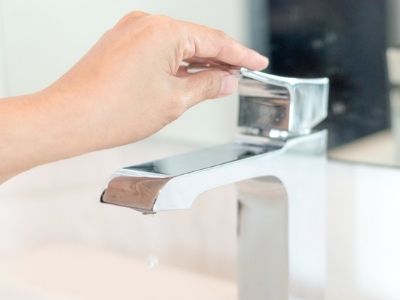Three St Patrick’s Day Water Conservation Tips to Help Save Money
While the “pinch” on St Patrick’s Day usually applies to not wearing green, a person may be more concerned about money being tight than wearing the right color on March 17th. Conserving water is simple and can make a difference in a home’s monthly water bill. It is a win for a family’s pocketbook; it is also the planet!
A homeowner looking to save money should consider following the suggestions below. They are simple and can make a big difference.
Money Doesn’t Come Out of Faucets, Or Does It?
It is so easy to turn on the tap and let the water run that some forget that it takes energy to keep the water clean and safe to drink. Energy equals money, and the homeowner is the one who ends up paying. Sometimes it’s best to turn off the tap on the bathroom sink and save a little water.
When to turn off the faucet instead of allowing it to run:
- Washing hands
- Brushing teeth
- Soaping up in the shower
The Long Debate: Which Saves More Between Baths and Showers?
One can measure baths; it is more difficult to measure showers. Showers let all the water down the drain while baths keep it in one space. The debate has long raged about which form of ablution uses the least water. The truth of the matter is it depends on several factors:
- Time: Baths typically take at least twice as long as showers. Baths are 20-30 minutes, whereas showers are typically 5-10 minutes long.
- Shower Head: A reduced flow showerhead (also called a restricted showerhead) can reduce water use by as much as 50%.
- Tub Volume: Typical tub size by volume is around 60 gallons. The typical bath uses 30-50 gallons of water.
In the end, it is typical for a shower to conserve more water than a bath. Paired with strategies like shower sharing or adding a restricted shower head to shower plumbing can save even more money.
Flushing Money Down the Toilet
One factor of water conservation that is often overlooked is the waste that can happen with a clogged toilet. A typical slow draining clog takes multiple flushes to relieve, which can be a serious water waster. One of the simplest ways to prevent toilet clogs is not putting anything in the toilet but what is supposed to be there.
The list of potential toilet cloggers is long, but there are a few more popular items to flush that should not be flushed. These include the following:
- Feminine sanitary products
- Baby wipes
- Paper towels
- Paper
- Contact lenses
- Anything that is not toilet tissue or waste
About Dutch Enterprises
Dutch Enterprises prides itself on its 50 years of service in Cape Girardeau, MO. They are an award-winning business with 100% satisfaction guaranteed. Call today for residential and commercial plumbing services in the Cape Girardeau area.






















